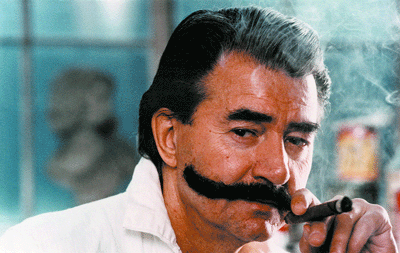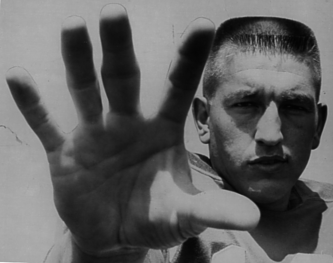Robert Ward is a novelist, journalist, and a screenwriter. He recently published, Renegades, a collection of his magazine work from the 1970’s and was kind enough to take time out of his busy schedule for a chat.
Hope you enjoy. Dig in.
Bronx Banter: You were a novelist before you wrote journalism. How did you transition from writing fiction to doing non-fiction?
Robert Ward: My first novel Shedding Skin was really good and won the NEA Grant as one of the top novels of 1972 because I had lived it all. I had actually hitched around and gone to Haight-Ashbury and lived there and been idealistic and seen my ideals trashed. I’d suffered a nervous breakdown living that way, and was barely able to survive mentally. All of that material got into Shedding Skin. So it was lived experience not second hand stuff from a book. In short it was wild-exaggerated-for-comic effect-reportage. But the bottom line was it was real. You can’t twist and turn stuff unless you have it to begin with.
BB: The so-called New Journalism was in full swing by then.
RW: That’s right. I had done a little journalism work. In fact, I’d help start an underground newspaper with John Waters, Jack Hicks, Elia Katz, and Jack Walsh in Baltimore. It was called the Baltimore Free Press. My first piece for it was an interview with The Loving Spoonful, when they came to town. I was a huge fan of theirs and assumed they’d be happy guys, considering the many hits they’d had.
But I found them to be depressed and bummed-out because they hadn’t had a hit for I think it was like eight months. It was the first time I realized how fleeting rock n roll fame could be. They were unhappy and John Sebastian seemed really miserable. I wish I could have found that piece and included it. It taught me a lot. That getting out in the world and seeing things for yourself was really exciting.
BB: Getting you out of your head and in the insulated world of academia.
RW: Yeah, it was a lesson I didn’t learn well enough, because after I had published Shedding Skin and gotten married again, I found myself with two young boys–my second wife’s kids from her first marriage–and no money. Teaching was at least a little security but it was killing me. I knew I didn’t belong in it. When my second novel–which was supposed to be this Great Radical Tome that would fan the fires of revolution–failed miserably, I knew I had done what so many other writers of my generation had done. That was become an academic, a guy who never saw anything but pretended to know all about the world. I got drunk on campus and played the enfant terrible with a bunch of teenaged students. I had grown to hate myself for being such a phony, so I was determined to become a journalist like Tom Wolfe or Hunter Thompson and let the chips fall where they may. When my wife left me for this rock n roller dude I knew I had to re-invent myself or really go down the tubes. I got encouragement from Tom Wolfe when he came to campus and figured out a way to get the Geneva police to let me hang with them and did my first piece on them. From that moment on my career took off.
BB: What was it about Wolfe and Thompson, as opposed to Gay Talese, for instance, that turned you on?
RW: I was influenced by Wolfe and Thompson and also Terry Southern. But pretty soon I found my own voice, which was not so absurd as either Thompson or Southern, and less erudite and right-wing than Wolfe’s. I wanted to be funny and smart but also compassionate and risk feeling things for my subjects. I didn’t want it to be all outrage and jokes. And I was still basically a Lefty.
BB: That’s great you mentioned Terry Southern. Of the three guys you mentioned he’s the one who is least remembered now. Why do you think that is? He could have been the biggest influence of all three at the time.
RW: Terry was my hero, not for his journalism, but for his book The Magic Christian, which is still the funniest and hippest satire on American greed, show biz and hype ever. I loved his sensibility and shared it in a way. As a kid in college the crowd I ran with got into speaking only in clichés to people we didn’t dig. It was cruel and very funny for a while. The people we were talking to often didn’t realize it was going on. Of course it was very immature but hey, we did it mainly to people who were the big men on campus, jerks. It was the arty students little revenge on them. They were the fifties people and the world was fast-changing. It was around then–my junior year–that I discovered The Magic Christian on a pile of remaindered books at E.J. Korvettes. A black hardback book with a pink pig on the cover. I picked it up and read the opening lines: “Grand Guy Guy Grand was, as he put it, on the go.” After reading a couple more cliché laden lines I had the great realization that this novel was going to be one of my favorite books of all time.
BB: I love when that happens.
RW: Certain books are like that. You need only look at their covers and read one or two lines and you know your whole life will be changed by them. The only other books I’ve read that put this astounding spell on me were Catcher in The Rye when I was fifteen and A Fan’s Notes in my 20’s. Anyway, I realized that this Terry Southern chap shared my love of the put-on and had a very similar sensibility as myself and my friends. The use of clichés, the feeling that the world was mad, but also this almost academic rigor in his sentences. Parodic 19th Century stuff. Perfect. I never actually used his riffs, but he helped me see into sham and the great hustle of pop culture. Later, in New York, we became friends and he was one of the most brilliant people I’ve ever met. His bullshit detector was foolproof. That’s what I think we shared.
BB: That’s one thing about Wolfe and Thompson and Southern–their style seems loose at first almost improvisational which may explain why it appeals to younger readers but it actually takes a huge amount of discipline and rigor to pull it off. I remember the same being said about Robert Altman, that he produced casual-looking ensemble style but it took a ton of discipline to achieve it.
RW: Well, with Wolfe , Southern and Hunter Thompson their style and sense of humor is first what appealed to me. They all had the sense of how wild the world was, what an amazing parade of fools and heroes passed before us. I loved that about them. They really caught the unique quality of American life like no one else. But what people forget about Wolfe and Thompson was that they really knew their subjects inside and out. I took Tom Wolfe from Hobart College in Geneva to his plane in Rochester and he told me all about Jospeh Smith in upstate New York and the history of the Mormons. It was the same for whatever he wrote. He researched the subjects before he went out and interviewed them. I did the same thing with ex-Premier Ky of Vietnam. I spent three days in the library before I went out to California to interview him. Six hours a day. I wanted to know everything I could about him. Research made a huge difference. We were able to talk about people like Ellsworth Bunker, Johnson, Thieu and many others. When someone is relaxed and likes you they’ll tell you great stories and allow you to hang out with them. Going to a parents-teachers meeting with him was absolutely amazing. The twenty-something-year-old kids who were teaching his children were absolutely terrified of him. But he was as nice as he could be to them. I wouldn’t have gotten to go on that little every day journey with him if I hadn’t prepared. You can only get the casual, everyday stuff if you’ve really done your homework.
BB: One of my favorite pieces in the book is a memoir story about your grandfather and the strip clubs in Baltimore. It reminded me of a scene out of the movie Diner. How did Baltimore shape you?
RW: Baltimore is a tough town, a very loyal town, a town of small neighborhoods in which people know one another all their lives. At least it was that way when I grew up. It formed my consciousness. You had a rough kind of wise guy humor there, and growing up my friends and I laughed at anything that scared us. But the really tough thing about the place was that there was just about no place to go if you wanted to be a writer. That’s why I had so little confidence when I grew up. My dad used to laugh at my desires to be a writer. Mainly because he was a failed painter. He had talent and was very artistic and a sensitive guy. Very smart. But there was no outlet for a working class kid like him and there was very little for me. I used to try and write and he’d look at me and say, “Mister Hemingway. You think you’re going to be a big writer. Well, you’ll learn pal. You’ll learn like I learned. Nobody wants you. Nobody is waiting for you, Mister Hemingway!” How I hated those words.
BB: I have an uncle who grew up in South Ozone Park in Queens and they used to rag on him for wanting to be a painter. “Hey, Freddy the Artist.” Like he was a clown.
RW: Maybe my father did me a favor because I would scream back at him: “I AM GOING TO BE A WRITER AND NOTHING YOU CAN SAY WILL STOP ME!” Man, I hated him in those days, he never took up for me. I was busted by the cops once for speeding, and I called the cop a fascist. They made me come down to the Chief of Police’s office with my old man. I thought he’d speak up for me, you know say something like “He’s really a good boy, officer.” Instead he said, right in front of me, “He’s a rebellious boy officer and always has been. I don’t know what to do with him. He won’t listen to me or his mother. He’s just no good.” The Chief suggested they lock me up for a week to see if that would get me straightened out and my father didn’t say anything at all in my behalf. I just sat there totally freaked out. I knew they couldn’t really lock me up for a traffic ticket and a wise crack. They let me go with a warning. The cop told my father “If he ever gives you anymore trouble Mister Ward call me and we’ll lock him up for a while.” Then we left. In the car going home I screamed at him. I was crying, “You sold me out to that cop. You didn’t even stand up for me, you cowardly bastard.” I jumped out of the car on the way home at a red light and just wandered around on the streets for hours until my friend Hicks got home and then stayed on his couch for a month.
BB: How long did the rift last?
RW: A while. But later in life we made up and he admitted he had been too tough on me, that he had been a lousy dad. I found out about things his dad had done to him. It was a sad story. I knew I had to get out of Baltimore or I’d drown there. But in many ways I loved the city, loved the Orioles, the Colts, my buddies and our wild, drunken car rides. But you could see very early–and I saw it in my own family–that no one who wanted to be a writer from my class of people was going to get anywhere in that town.
BB: How did you find support or the confidence to become a writer in spite of that?
RW: It took my years to find myself and my own way but I found people who helped me. Some in academia and some–most of them–in New York. Editors and other writers who told me I was talented and couldn’t do enough to help me. People call New York a heartless place but they don’t know anything about it. No place was ever better to me. If you have talent in New York and want to work you’ll succeed. Same in LA. There are rough people in both places but if you’re tough enough and want to work, you’ll make it.
BB: Did you grow up reading Mencken? And did you follow your contemporaries from Baltimore, reporters like Mark Kram, a fellow blue collar guy, or Frank Deford, who was not so blue collar?
RW: Mark Kram wrote obits for New Times. I knew him a little. Good dude. I never read Frank Deford. Never met him. He was older than me. I loved Mencken to death. And still recall his great essay “Why Baltimore Is Superior to New York.” He said that basically it was better because people in Baltimore were your friends whether you were successful or not but in New York once you lost your mojo no one would talk to you anymore. I didn’t find this to be true but it informed my life when I got to New York. I met various con artists and hustlers there. And was, for the most part, not all that surprised because of Mencken.
BB: When you started doing pieces for the New Times, and then even later when you profiled celebrities, did you have a hard word count?
RW: There was sometimes a word count. “We need about three thousand words on this one.” But if I got great stuff they would always try to fit it in. New Times was the best at that. But so was Sport, GQ, Rolling Stone. These were real writers’ magazines. When I think back on it, I can’t believe how lucky I was to work for mags that cared about the writers, and made them the stars of the magazine world.
BB: One of the most notable differences between magazine pieces then and now is that writer’s were given far more space back then.
RW: There is nothing out there now like this. Maybe Harper’s and the New Yorker. But the other mags have all become pretty much promotional organs for the stars of entertainment. That’s because the publicists control the scene now. If you’re a little mean, from their point of view, to one of their clients, say Tom Cruise, the PR firms will make sure you never get access to any of their other clients. It’s a form of censorship. And a very effective one. Of course you can say whatever the hell you want on the internet but that’s not reportage. People who blog and trash public figures rarely have any access to them. And most of them aren’t real writers either. Merely having a snarky opinion isn’t writing.
BB: Can you talk a little bit about the New Times another magazine that is not well remembered by younger generations.
RW: New Times was a new magazine in the early 70’s. It was started by Jon Larsen, whose father was a journalist with Life, and in fact the Larson School of Journalism was named after him at Harvard. Also Frank Rich, David Hollander, and it was owned by George Hirsch. It was a bi-weekly magazine with really good writing in it. Larry L. King, one of my favorite writers from Willie Morris’ Harper’s in the sixties, and Robert Sam Anson, the intrepid war reporter from Harvard, was there as well. It wasn’t as counter cultural as Rolling Stone, but very political. I’d say it was a cross pollination of The Voice, Rolling Stone and Esquire. Later when they brought on John Lombardi from Rolling Stone as an editor it attracted some wilder writers like Lucian Truscott, who did great work for them. It never quite found its true identity, however. Not quite Time, not quite Stone. Eventually, as circulation dropped Hirsch sold it and started a new magazine called Runner. He told me later that one of the problems with New Times was that the ad guys would work their asses off to get say a Xerox account and then Larsen would publish some investigative piece on them which would, of course, infuriate Xerox and make them cancel their contract. But for me it was a showcase. They gave me as much space as I wanted and I loved working with everyone there. I’m still close pals with most of the guys I worked with there.
BB: The first non-fiction story you wrote was about the police in Geneva, the college town where you taught. It also brought your first brush with consequences. What did you learn right off the bat about the impact you’re reporting might have on a subject and did that effect how you approached doing stories moving forward?
RW: “The Yawn Patrol.” That really shook me up, the cops harassed me slightly after that, but I never let it bother me. I was determined to take the journalism life seriously and rather than scare me off, it made me excited to know that my words could have a real effect in the real world. I was sorry that I’d made the cops life uncomfortable for a while but it was the truth. That line about the girl’s legs and their walks…walks with money behind them…said it all. The class gulf between the kids they protected and their own lives. What I learned was that if a piece is really good it’s going to sting somebody and they might come after you. But if you let that stop you, you shouldn’t be in the game.
BB: I like that your go-to line with subjects was that you were there to “set the record straight.” Can you talk about why this worked as a way to relax them?
RW: The beauty of the new journalism was that they’d tell you to write a piece on say Larry Flynt but there was no word count at all. They left it to the writer’s judgment. I spent a week with Flynt and got stuff that was totally outrageous. No one had ever really hung out with him before. When he asked me if the review was going to be negative or positive I answered, “I’m here to set the record straight.” To my mind this meant whatever I find I’m writing, unless you specifically tell me it’s off the record. I don’t know what Larry made of what I said. But he did mention how he thought of his life as a Horatio Alger story. “Poor Boy From The Back-Woods Makes Good.” He never actually said he wanted me to write the story that way. But it’s probably what he expected. But I had already told him why I was there. “To set the record straight.” And what great stuff I got for the record.
BB: He was the gift that kept giving.
RW: I sent the 10,000 words into New Times and they couldn’t believe it. They ran the whole damned thing, pretty much as I wrote it. That was so exciting. I mean I had barely started in my career and here was a cover piece. Plus, we asked Flynt to pose with his Blow Up Sex Dolls on the cover of the magazine and he did it. He had no idea what the piece said inside. Of course, when the piece came out he was shocked. Which I thought was pretty funny since he spent all his time shocking the bourgeois liberals and Bible Belters with his outrageous sex and outhouse humor. Eventually, he got over it and offered me the editorship of Hustler! I turned it down but my buddy Paul Krassner took the gig. Think he lasted about a year.
BB: I can’t believe that Flynt was taken aback by your piece. Did that just show his own naiveté at having a writer follow him around for a week?
RW: What you’re forgetting is I was the very first guy to do an in-depth, hang-out piece with Flynt. He was completely naive and thought–I think–that I would have the same attitude that he had about his life and career. But I never promised him anything. Anyway, he never let anyone get close to him again. Look at any other piece on him and you’ll never see that kind of access. Later, after he had forgiven me he asked me to do a documentary on him. I said I was willing to do it but I had to have control over the final cut. He wouldn’t go for that, so it never happened. But I remember when we met to discuss it in New York. He looked at me and said, “There he is: The Truth Teller!” Said with both admiration and disgust.
BB: And yet your more frightening episode was with the country singer David Allen Coe.
RW: Yes, the confrontation with Coe’s biker friends was super scary. They moved in on me in his room and there was no appealing to him because he was passed out on the bed with a girl sort of draped over him. One of them had a knife and cut away part of my leather jacket I was wearing. I remained fairly cool headed, kept my voice even, as I said, “You guys got the wrong writer. I have never written anything about Coe before. They thought I was the writer who had written a piece saying he wasn’t a murderer, that his story about how he’d been put in prison for murder but sung to the warden and gotten a pardon was all bullshit. Actually, a woman writer whose name I can’t recall now wrote the piece for Rolling Stone. Which is what his manager said when he came walking into the room. Jesus, what a nightmare. The guy took me into the next room and told me that he was sorry for the biker’s mis-treatment of me. “Come back when we tour the East Coast next year and you’ll see that we’re not like that.” Right, yeah, see you guys then.
BB: And yet your editor wished you had gotten stabbed because it would have made a better story.
RW: My editor Jon Larsen’s response was his idea of a joke. Sort of. He actually kind of meant it. It wasn’t enough to take one for the team. He wanted me to bleed for the team! I forgave him though and we’re still pals. WASP humor. He did a lot for me, gave me all the space I wanted and was a champion of my career.
BB: Another piece I really liked was the portrait of Leroy Neiman. The guy seemed so insecure, wrapped up in his celebrity–pissed that the art world didn’t take him seriously while the masses made him rich. He seemed like a character that Warhol himself could have invented but without irony or seemingly a sense of humor about himself.
RW: Looking back I think I was a little hard on Neiman. He was a pretty good guy, though he had a ridiculous king sized ego, marching around Jets stadium and waving to his fans. He did lack a sense of humor about himself and he was insecure. But you know what–he was a hell of a sketch artist and he was really good at illustrating sports heroes and other entertainers. Maybe I should have given him more credit. But he wanted to be taken seriously as a great artist like Picasso, and that just wasn’t going to happen. Still, he might be remembered as a great illustrator. People certainly love his work. And he was right about one thing: The establishment in the art world is snobby and nasty, and to tell you the truth I’ve never been a great Andy Warhol fan.
BB: Warhol was a bullshit artist.
RW: He was hip and cool and all that but I never loved his soup cans or his paintings of celebs. How much brains did it take to do what he did? But nobody ever parodied him. Why is that? Afraid if you laughed at Andy you wouldn’t be cool?
BB: He beat them to the punch.
RW: Well, I never dug him or his scene filled with drag queens and other non-talents and would have loved to have done a piece on him with all of his affectations. Leroy said so many self aggrandizing things it was kind of like shooting fish in a barrel. But it is a funny piece…
BB: Your most famous magazine story might be the profile you did on Reggie Jackson for Sport. Did you know you had gold when you spoke to Reggie in the bar during spring training?
RW: Oh, yes. I couldn’t quite believe how poetic he was. But this goes along with my theory of bragging and poetry. For the average male in the world today the one place where they really become poetic is when they’re cursing someone out, or bragging about how great they are. Over the years I’ve heard the most creative use of language in these arenas. But Reggie went beyond the call of metaphorical duty. “I’m the straw that stirs the drink. Thurman Munson thinks he can stir it but he can only stir it bad. I’m the guy who puts the meat in the seats.” On and on and on…When he left the bar I just sat there reading my notes and saying, “Thank you, Jesus!”
BB: In the postscript to your story on Clint Eastwood you write about a reporter’s nightmare—your tape recorder not working. Did you tape record the Reggie interview?
RW: I didn’t use tape much at all because I was afraid something would happen to the machine. Just like it did with Clint. I had a perfect memory and let people talk, then scribbled down what they said when we were eating or having a drink. Obviously you can’t write as fast as someone talks, but I never missed a word.
BB: I know Reggie has denied saying the “Straw that stirs the drink” line. Why do you think, all these years later, he still disputes it so hotly?
RW: Reggie is super competitive and he hates to this day that I got him dead to rights. But he admitted it to Pete Axthelm in Newsweek right after he said it all. Axthelm asked him if he really said all that stuff and he said, “Ward caught me off guard.” Later, he changed it to the “took me out of context,” to which Munson is reported to have said, “For twelve fucking pages?” Then, even later, he decided he never said any of it. The next stance he might take is that he was never there at all and I never spoke to him. Then maybe he could go a step farther and say he doesn’t even exist. Who knows?
BB: I doubt he’d go that far. Reggie had a flair for hype. Genius may be too strong. That’s a word, “genius”, that is tossed around all too flippantly but I was drawn to how you used it, with great sincerity, in describing Pete Maravich.
RW: Pete Maravich was a true athletic genius. What he could do with a basketball was so amazing you had to see it three or four times to believe it. I mean running full-tilt down a court, bouncing a ball off of your instep cross court to a guy waiting under the basket? Unreal. Punching the ball with your forearm while looking the other way and making a totally accurate pass, heading the ball into the basket ten times in a row. He would do this stuff in practice and the other players would just stop and stare at him open mouthed. I feel privileged to have known and hung out with him. And then consider he did all this with one less arterial system in his body than we are supposed to have. His whole career was a miracle because most kids who are born with his heart problems are dead before they are sixteen.
BB: People tend to remember him as someone who was tortured and didn’t achieve as much as he could have but it was incredible what he accomplished considering his health problems.
RW: As a journalist you’re always on the lookout for a good story, but sometimes you run into someone who is just freaking miraculous. That was Pete. Even Magic Johnson said so. But again, he made it look easy because he practiced six or seven hours a day as a kid. Every day. He worked out all of these ball exercises and did them religiously day after day after day. He was sweet natured too. I said, “Pete I just can’t believe the stuff you do.” He said, in this really sincere voice, “Robert, you could do all of them too if you went home and practiced two or three hours a day. I mean really. Try it!”
Hearing that made me want to give him a hug. I mean it was like being told, by Einstein, “Honestly, Bob you could have come up with Theory of Relativity if you’d just worked a little harder at your physics lessons. Go home. Read a couple more science books and you’ll see what I mean” The guy was sincere and a great teacher. If he had lived he would have been a wonderful coach, because he wasn’t only talented, he was kind and patient as well.
BB: What are the general differences between writing about actors and athletes?
RW: Well, they have a lot on common. Both athletics and acting is about timing. You need to do things just right. If you’re running through the two hole on the line you need to wait for your block just long enough and then go. Same with delivering lines. You need to have the right timing when you start speaking, when you move your hand to pick up the cigarette, or answer the phone. It has to be done the same way over and over and over again. Amateur actors, for example, can’t sustain a performance because they don’t stay in character with their bodies. It’s not about just saying lines. You have to turn your body just so, pick up the magazine just so…on the third line of the speech. You have to move your mouth just so, your eyes have to squint or not squint just so. Comparably, as a wide receiver you have to make your break at the fifteen yard line every time, not the fifteen and a half yard line. You have to wait for the block as you run through the line, you have to make the back cut after the pulling guard has hit the linebacker not before. In basketball you have to get to your spot on the floor at the right moment, not a second later or a second earlier. In baseball you have to hit to the opposite field if the ball is outside. You have to play every batter differently in the field. You have to time your hitting, time your throw to second. Physical timing is imperative in both sports.
BB: That’s so true and yet people rarely comment on the physicality that goes into acting.
RW: Yeah, and athletes tend to become pretty good actors. Obviously there is sensitivity to acting, to saying lines that most jocks don’t have. Just as there are physical attributes actors don’t have when they want to play sports. Ever look at actors? They are small boned for the most part and short. They have thin legs and waists. Look at a baseball player on any team. Big thick thighs, big wrists…some of them, like pitchers, big waists. But almost all power hitters have big trunks. Reggie had huge legs, thighs. That’s where they get their power from.
BB: But isn’t there a difference between the mental makeup of actors and jocks?
RW: Actors are much more vulnerable and insecure than athletes. They worry a lot and feel, I think, that acting isn’t a manly profession. There’s a saying actors have: “To be an actor you have to be twice the woman, and half the man.” Only a tough woman can make it because it’s so tough. But for a man to do it…well, it’s seen by actors as being a kind of feminine profession. Pretending. Not very manly. Men should be building bridges, flying planes, shooting guns. Actors only pretend to do these things, so it makes them feel insecure and I think there’s still some shame in the profession. Brando used to say that all the time. I think writers feel the same thing. As a rule, both actors and writers would rather be John Elway than Hemingway. Because athletes risk physical damage, have to have physical courage. Actors and writers need courage too, though. It’s tough being a writer. No one knows how tough until they try it. It takes a kind of courage not many people will ever realize to face a white page of paper and know you have to fill it up with new, brilliant stuff that people may read and hate or laugh at. I’ve had scripts I’ve written for TV balled up and thrown back at me with absolute hatred. It took courage to go back into my room, knowing I was two seconds away from being fired or strangling my boss and just cool down and start over again. It takes courage to act in a movie and risk people thinking you are awful. Few people can either act or write well, and it takes a lot of courage to do either one as your life’s work.
RW: In those days before publicists did you find that your subjects were almost always cooperative? Or did that depend on the person’s personality? Can you recall profiling anyone who was reticent and difficult to draw out?
RW: I did a piece on Robert Duvall which was impossible. He wouldn’t say anything at all. He didn’t trust me and as a result I had to go back again and again to talk to him and I still got next to nothing. When the piece came out in Rolling Stone I heard from a friend who knew him. He said that Duvall thought I tried to make him look stupid. Nothing could have been farther from the truth. I thought he was quite bright but he didn’t say enough for me to get a very good piece.
BB: It sounds as if Duvall made his bed, determined to be unhappy no matter what you wrote. I know he wanted to strangle Pauline Kael for her review of Tender Mercies. He wouldn’t be alone. But I liked how Clint Eastwood was more objective about her critique of Dirty Harry–he understood the hype in her take. And it sounds as if Eastwood was the opposite of Duvall.
RW: Clint Eastwood was anxious to have the younger, hipper audience catch on to him. In fact, most of them were starting to get it, so we were only a little way ahead of the curve. He was famous for short interviews and I was told if you asked the wrong question he would get surly and toss you out. In fact he was friendly, courteous and very well spoken. He knew what he was doing on the screen and he understood that there was a comic side to his performance, but it had to be done completely straight. As he said to me, “If you winked or let the audience know you knew it was funny, it wouldn’t work.”
What really impressed me is when I asked him about critics who had assumed he didn’t know what he was doing, that he was just lucky. He said that he had chosen his hat and his old jeans and the serape he wore in the man With No Name Westerns with Leone. He brought them with him from America. He knew exactly the effect he was creating. The squint, the cigar, the clothes were all Clint’s ideas not wardrobe’s. That’s part of acting too, your look. People forget that. Think of the show I worked on, Miami Vice. Without the look of the show it’s just another cop show. These are things the average movie critic doesn’t even comment on. Clint was generous and civil and even did the interview with me over again when my tape recorder failed! I thought I would get fifteen minutes and I ended up with three hours of tape. He’s a great guy.
BB: How surprised were you that Lee Marvin turned out to be so agreeable to interview?
RW: Lee Marvin completely fooled me. I always assumed he would be some lout like the louts he played so well. But he was the exact opposite. He was dressed in a beautiful Italian suit, and was friendly and, at first, rather formal. But after a couple of drinks we became good buddies. He loved to tell stories of his drinking days, and he loved fishing, hanging out in the desert, listening to jazz. He also made a musical, “Paint Your Wagon,” as did Bob Mitchum.
BB: I dug the no-nonsense professionalism of Mitchum. Especially his comment about De Niro:
I was on the set with De Niro, The Last Tycoon, and he takes forty minutes to get ready for a scene in his trailer. Ray Milland was in the movie, and he gets all upset. He asks Gage Zazan how come we didn’t get that much time, and Kazan says, ‘Hey, look, you guys don’t need time like that. Come on, just say your lines, I got enough problems with him.’ The thing is, it’s a hell of a lot more work, and I don’t see overall where the films are any better, really. You tell me.”
How was Mitchum like Marvin if at all?
RW: In Mitchum’s case it wasn’t a musical but he did write and sing the lead song “Thunder Road,” which was a hit in the fifties. They both were tough guys who had big hearts. I didn’t know Mitchum as well, but Lee was kind and loved his old friends, especially Woody Strode, his partner in “The Professionals” and other films. He was so kind. When we went out to the Palm for dinner he was besieged by autograph seekers and he insisted they get my signature too, telling them, “This guy is a great writer. You’ll be happy you have his autograph some day.” You can’t get much nicer than that. He called me at four in the morning to tell me how much he loved my novel Red Baker. “Hello, this is your book reviewer from Tucson. One hell of a book, Bobby.” That was the kind of a guy he was.
BB: Was there anyone you wanted to profile that you never had the chance to get to?
RW: I would have loved to interview Johnny Unitas, who eventually became a friend of mine. He was my childhood hero, and when the horrible Irsays moved the Colts out of Baltimore in the middle of the night I wrote a piece in GQ on how much the old Colts meant to me and everyone else I knew growing up in Baltimore in the fifties.
Johnny and Alex Hawkins called me up to thank me for it! I was so moved I could barely talk. And when Johnny died I sat at my computer and wept like a baby. I’m not ashamed of it, as many other guys I knew in those days had the exact same reaction. We loved him like no other athlete. He was exactly what you wanted your heroes to be like, on the field and off. Ask any of the old Colts who are left and they’ll say the same thing. A wonderful, caring and also very amusing guy. Had a great sense of humor. And more guts and heart than any player I’ve ever seen. He was the very best of the old Baltimore too. A guy who was kind to everyone and never stiffed his fans. You could go to his old place The Golden Arm on the York Road and have drinks with him. Imagine doing that with any of the well known quarterbacks today. They all have bodyguards and live in gaited prisons. The fact that he once threw me a pass when I was twelve and then said, “Good hands” when I caught. It’s a memory I’ve cherished all my life.
BB: Were there any pieces that were tough not to include in Renegades?
RW: I wish I’d included a humorous take on the Orioles losing to the Pirates in the World Series. It was really funny and one of my best short pieces, but I couldn’t find it. And there was a profile I did on Rip Torn for American Film but I couldn’t find it until the damned thing was put to bed.
BB: I had a subscription to American Film as a kid. I remember that one.
RW: Rip is the best. One night Rip, Margot Kidder, the mad novelist James Crumley and myself went to Chez Jay’s in Santa Monica. We’d all had too much to drink and we got into a pirate contest. That is “who could do the best Arrrrgghhhh!” I did one, ok but modest. Crumley did a better one. Then Rip did one that we were sure no one could beat. It was the Arghhh to end all Arghhhh’s. And loud. Like the whole joint stopped eating to hear it.
Finally, Margot, not to be outdone by no men, stood on the freaking table, looked out across the joint and ARRRRRGHED her ass off. I’ve never heard another Argggggh to top it. The whole restaurant applauded her and they bought us free drinks. That’s Rip. That’s Margot. Thank God they never got together. There would have been a new H Bomb.
Renegades is available on Amazon. And be sure to check out Robert Ward’s website.
[Photo Credit: portrait of David Allen Coe via Berrystop100; painting of Clint Eastwood by Jim Blanchard]

























